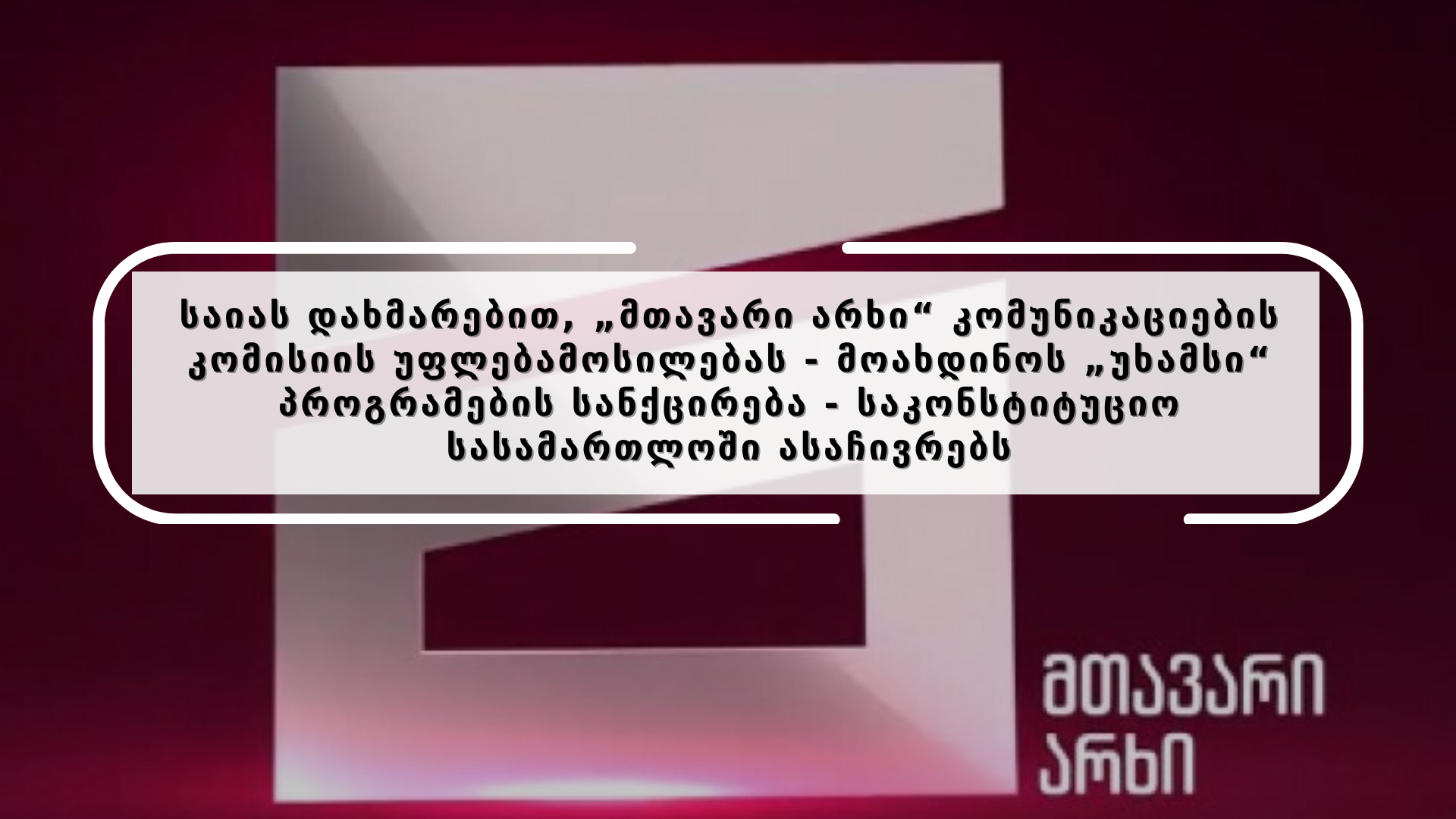NEWS

GYLA and Mtavari Arkhi are jointly appealing against the provisions of the Broadcasting Law, which, according to the National Communications Commission, gives it the authority to sanction the broadcaster for airing "obscene" programs. On February 1, 2021, the Communications Commission recognized the TV channel Mtavari Arkhi as an administrative offender for broadcasting the story of journalist Beka Korshia in the program "Main Saturday". The Communications Commission recognized the Mtavari Arkhi as an offender for airing this story. The Commission's motivation - to control the obscene content of a program - is based entirely on a misinterpretation of the Constitutional Court's decision of 10 November 2009.
On November 10, 2009, in the case of Giorgi Kipiani and Avtandil Ungiadze against the Parliament of Georgia, the Constitutional Court declared unconstitutional the provisions of the Law on Broadcasting, which prohibited the possibility of litigation in court over obscene programs. In this case, the Constitutional Court found a violation of the first paragraph of Article 42 of the old version of the Constitution. The first paragraph of Article 31 of the Constitution (paragraph 1 of Article 42 of the old version of the Constitution) guarantees the right to appeal to the court. According to the practice of the Constitutional Court, the first paragraph of Article 31 of the Constitution reserves the right to appeal only to the Constitutional Court and the common courts (district/city, appellate and supreme courts). The first paragraph of Article 31 of the Constitution does not guarantee the human right to apply to the National Communications Commission or any other administrative body. Neither the description of the decision of 10 November 2009, nor the motivational or the resolution part of the Constitutional Court speaks at all about the fact that a person should have the right to appeal obscene programs to the National Communications Commission. Thus, the decision of the Constitutional Court of 10 November 2009 did not lift the ban, which led to an appeal to the Communications Commission for obscene broadcasts, therefore, the Commission obtained this right through arbitrary and incorrect interpretation of the law and the decision of the Constitutional Court.
The plaintiff considers that the power of the Communications Commission to impose a sanction on a broadcaster for broadcasting an "obscene" program is contrary to the requirements of Article 17 paragraph 5 of the Constitution, according to which freedom of expression may be restricted "only by law." The Law on Broadcasting does not establish the authority of the National Communications Commission to fight "obscene" programs on television and radio.
SHARE: